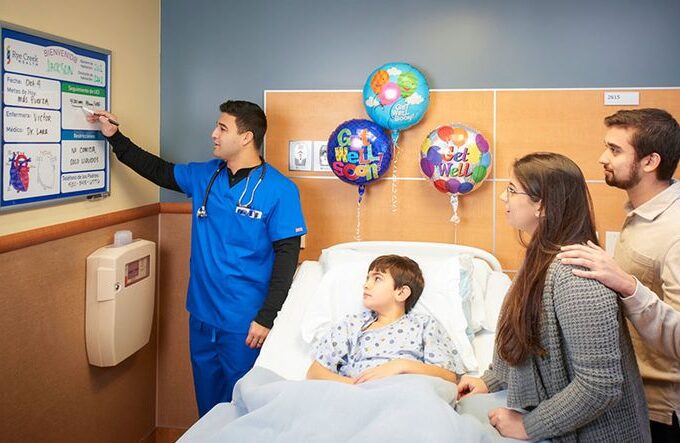Food safety stands as an unchanging necessity in the restaurant business which operates in an ever-changing industry with intense competition. Given increased customer awareness about their food consumption restaurants need food safety certifications to become successful operations. The AIA food safety management system stands essential for restaurants to maintain health standards and earn patron trust. Understanding the importance of these certifications while learning their effectiveness in building a superior restaurant.
What are Food Safety Certifications
Food safety certifications perform as official stamps to show restaurants their dedication toward achieving strict protocols during food preparation and handling. Food safety certifications confirm that a business maintains compliance standards against foodborne illness prevention.
Acclaimed organizations through their certification signify that the training programs meet strict guidelines for both state and federal requirements.
Food safety certifications concentrate on separate elements of food safety standards. The certifications examine food safety through diverse aspects that include healthy hygiene approaches or temperature requirements and safe storage methods.
Restaurants receive multiple credentials which serve to protect their customers’ health and improve their reputation in the industry. AIA food safety demonstrates how to manage possible food hazards through comprehensive education about food service management.
The Benefits of Having Food Safety Certifications
Food safety certifications establish your restaurant as a reliable business to customers. Your food safety certifications to customers demonstrate your commitment to maintaining their health together with their well-being. Trust formation stands essential because your market relies on it.
Restaurants with certified food safety compliance receive a more dedicated customer base. Your patrons feel confident to patronize your restaurant again because of your strong dedication to food safety practices.
The process of acquiring these certifications leads to an enhancement of employee satisfaction. Staff members show great satisfaction in working for a place because the establishment consistently demonstrates its dedication to maintaining premium standards. The result produces better staff engagement combined with reduced staff departures among employees.
A food safety certification program provides legal protection to businesses. Both the non-payment of fines and the avoidance of legal action for food-borne illnesses become possible when you abide by compliance regulations.
A certification allows restaurants to obtain discounted insurance premiums because their non-compliance incidents create reduced risks to insurers. The implementation of AIA food safety initiatives delivers multiple financial gains above basic requirements fulfillment.
Types of Food Safety Certifications Available
Organizations issue different food safety certifications which focus on particular elements of food production processes.
ServSafe provides food handling practice training that has grown popular with many users. ServSafe is an American-wide approved certification that instructs workers on storage along with preparation and serving methods of food ingredients safely.
Another significant certification includes Certified Professional Food Manager (CPFM). A comprehensive program provides individuals with improved expertise regarding food safety management systems together with full understanding of regulatory compliance standards.
International standards professionals should focus on obtaining the Hazard Analysis Critical Control Point (HACCP) certification. The certification system tracks possible dangers in food preparation which enables the creation of safety controls to prevent potential risks.
Restaurant operators can get specialized training through AIA food safety even if they have achieved their basic certifications because the organization provides additional educational programs. The training includes specific allergen knowledge as well as protective sanitary programs that support high-quality services.
Each different type of assessment serves a pivotal function when it comes to restaurant food safety procedures.
How to Obtain Food Safety Certifications for Restaurants
The process to obtain food safety certifications for restaurants consists of different protocols. You must determine the particular certification which serves your requirements. Different organizations deliver specialized food safety programs intended for separate elements of the sector.
The second step requires registration into appropriate food safety training. Institutions offer both online classes combined with in-person workshop opportunities for their students. The training will provide necessary understanding about proper food handling safety to both you and your restaurant employees.
Student achievement of the course requires final examination completion. Earning a passing score during such testing proves that you grasp fundamental food safety principles.
The maintenance of good standing requires you to follow best practices at all times in your facility after receiving your certification. A series of regular refreshment courses provide updated information about new regulations alongside new industry standards.
Become ready to undergo scheduled health authority inspections and certifying body evaluations to maintain continuous adherence to existing food safety standards.
Maintaining Food Safety Standards in the Restaurant Industry
The restaurant industry needs to accomplish food safety standards through perpetual effort along with strict determination. Staff members need continuous training to operate effectively. Restaurant employees need full knowledge about food hygiene practices together with proper cooking temperature and ingredient handling procedures. A system of checks can help a business maintain correct food safety protocol compliance.
Monitoring establishments with regular audits reveals both existing shortcomings as well as necessary areas for improvement. The goal extends beyond earning certification since organizations must maintain these standards throughout each day.
Normal operations require team meetings about food safety to maintain employee awareness along with their motivated compliance of best practices guidelines.
The opinions of your restaurant customers give you useful information about how well your business fulfills food safety requirements. You should give customers opportunities to share their restaurant experience because such openness builds trust with the public.
Every establishment seeking success in today’s competitive market must stay informed about regulatory changes. AIA food safety certification serves as your base but superior standards through time will differentiate your establishment from competitors while establishing successful customer loyalty.
















